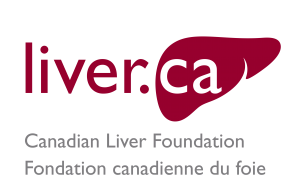A Message From Nem
A Message From Nem
I am the Director, Support and Education at the Canadian Liver Foundation. I have been with the CLF for three and a half years.
I have been fortunate to work with a diverse population; initially working with the general public on health and wellness interventions, followed by supporting the health of the Canadian Armed Forces members, and then transitioning to working with people at risk of liver disease.
When it comes to liver disease in Canada, there is something shocking happening in this country that I cannot wrap my head around: Even though more people are affected by liver disease than ever before, we don’t teach proper liver health in schools. It’s just not in the curriculum. At the CLF, we’ve launched a campaign to change this; will you add your name to have a letter sent directly to your Minister of Education demanding change?
Liver health education in school curriculums is a critical component to preventing liver disease. This will save lives. Promoting liver health education can help empower children to make more informed food and lifestyle choices, improve treatment outcomes, and reduce the rate of preventable chronic liver diseases, including non-alcoholic fatty liver disease (NAFLD), viral hepatitis, and alcohol-related liver disease.
In short: The more kids know now, the more likely they are to grow up with a healthy liver.
For liver health education to work, it needs to address the physical, mental, emotional, social, and spiritual dimensions of health. Historically, healthy eating programs at the school level have been unsuccessful. For liver health education to work, it needs to address the physical, mental, emotional, social, and spiritual dimensions of health. Thus, such initiatives/programs would need to include concepts such as promoting family involvement, consistency between the taught curriculum and food availability in the school, a long-term whole school approach, strengthening skills among teachers, and a program that focuses on blended learning.
Because we don’t teach liver health in schools, too many people are learning about their liver when it’s too late.
Non-alcoholic fatty liver disease (NAFLD), the most common liver disease in Canada affecting over 8 million people. I’ve spoken to quite a few folks who’ve learned that they have been diagnosed with NAFLD and that it has already progressed to its more serious stage, called non-alcoholic steatohepatitis (NASH). At this stage, inflammation occurs in the liver, and this can lead to more complications that may result in cirrhosis, end-stage liver failure, and the need for a liver transplant. If some of these individuals had received proper liver health education in school, they would have been more aware of what NAFLD was, which means that they may have been able to speak with their health care provider sooner and make necessary lifestyle adjustments that could have helped their liver recover and avoid liver failure.
To me, it’s a no brainer. We need to teach liver health in schools across this country. All of the evidence suggests that establishing effective partnerships between the education sector and the health sectors is the way forward. If you haven’t already, I urge you to sign your name and have your letter automatically sent to your Minister of Education.
Nem Maksimovic MPH, MSc
Director, Support and Education
Canadian Liver Foundation



